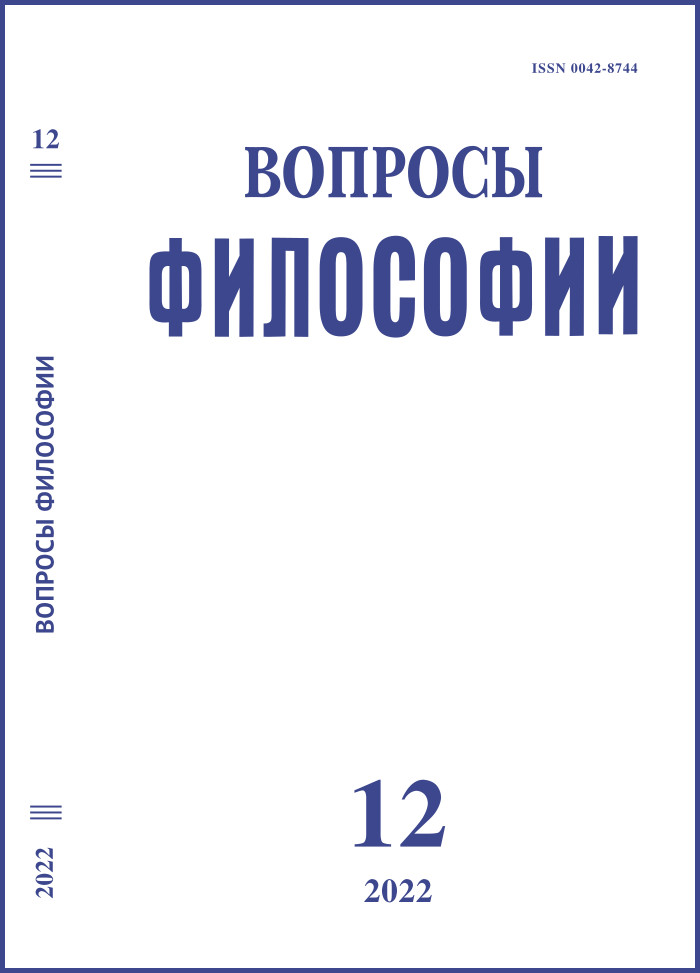Contemporary Social Ontology: on the Threshold of the “Fifth Program”
DOI:
https://doi.org/10.21146/0042-8744-2022-12-28-39Keywords:
social ontology, “program in social ontology”, humanitarian ontology, “the other institutionalism”, J. Searle, T. Lawson, B. Epstein, R. Bhaskar, M. Archer, F. Guala, A. GreifAbstract
The article is devoted to the problem of substantiating one of the possible ways of constructing a new, “fifth” program in modern social ontology, which deals with the study of social reality, its nature, structure and the main elements that make up this reality. As a result of the analysis of the state of research in the field of social ontology, four (“four +”, if we include here “other institutionalism”) competing research programs were identified. A general review of these valid programs is conducted in order to establish differences between them and identify problem points in modern social ontology. In particular, the lack of a clear understanding of the difference between social and humanitarian ontology is noted as one of the problematic points. The authors prove the need to develop the fifth program as a definite alternative to the designated programs, having previously investigated the prerequisites, which can be conditionally divided into two categories: conceptual and cognitive. When designing the “fifth program”, as the authors believe, it is necessary to rely on the KGM methodology, which is the conceptual basis of the Russian social and humanitarian sciences.
Downloads
Published
Versions
- 2025-02-07 (2)
- 2022-12-31 (1)

